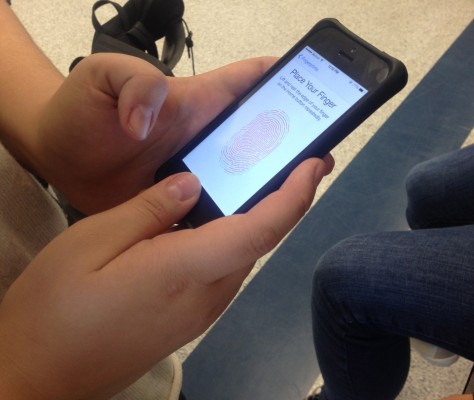Biometrics Are Commercializing at a Frightening Pace
November 2, 2013

Do you remember those futuristic movies in which citizens are identified through cameras equipped with facial recognition software and people are able to unlock their cellphones using high-tech eye scanners? Those gadgets may have looked cool, but were usually dismissed as unobtainable and too futuristic to be real. However, these innovations born from science fiction are now a part of reality and they are here to stay. Technological devices that incorporate the use of fingerprints, eyes, faces and other genetic materials, officially known as biometrics, are being developed and commercialized at a frighteningly rapid pace. Unfortunately, like with most technology, the advances are occurring so rapidly that humans don’t have time to evaluate the consequences of these high-tech devices and thus, can’t make well thought-out decisions on how to integrate them into society.
While technological advancements are exciting and can, without a doubt, lead to amazing things in the future, I think we should slow down and properly examine the effects this technology would have on our lives and liberties. Take, for instance, the cellphone. This commonplace device that most keep permanently attached to their hip is getting a high-tech addition of biometric technology. A revolutionary feature on the new iPhone 5S is the fingerprint recognition software. Known as “Touch ID,” this software allows users to unlock their phones by scanning their fingerprint on the circular button at the bottom of the device. Don’t feel left out, Android users; the Android has added “Face Unlock” to their new operating system. “Face Unlock” allows users to glance at their phone, upon which the phone unlocks based on facial recognition. While these technology features claim to protect your information, they are not completely secure and are susceptible to hackers. Their vulnerability negates their purpose of “security” and puts our most personal information—our biological markers—at risk.
Cellphones aren’t the only piece of technology getting a biometric makeover. The Department of Homeland Security is currently developing a system known as the Biometric Optical Surveillance System (BOSS). When fully developed, BOSS will use facial recognition software to scan large crowds of people and match faces to names. Once your name is matched to your face, the government can monitor where you go, who you see and what you buy. If this piece of technology is implemented, what is left of our civil liberties will be diminished for good. It seems as though the government is taking a cue from George Orwell’s “1984” in an effort to keep tabs on its citizens.
As if this wasn’t enough, non-government entities are pushing to install surveillance cameras in stores nationwide under the guise of providing consumers with coupons. Facedeals is an application that Facebook users can sign up for to get customized savings. The app will map out the physical characteristics of your face using pictures you have posted on your Facebook page. From there, participating businesses will have a camera with facial recognition software either outside or inside of the store. The camera will scan for facial recognition and then, if recognized, the application will send you customized coupons.
The use of biometric technology can have positive benefits, like helping to solve and prevent crimes by detecting and catching perpetrators. This could lead to a safer society where terrorist threats, violent crimes and thefts are rare because they are stopped before they have the chance to take place. Additionally, biometric technology can make daily life more convenient and provide a peace of mind to citizens who know their property and lives are better protected. But would we actually be safer?
We are left to ask ourselves just how much of our privacy we are willing to give up in the name of “protection,” coupons and “technological progress.” We must think long and hard as a society if we are willing to risk the government invading our privacy through this technology. Some people argue, “Well, if I am not doing anything wrong, then why should it matter if the government can identify me in public and monitor what I do?” While this is a valid point, do you really want to live in a society where your biometric information is susceptible to hackers and your every move is watched by the government? Taking time to think about biometric technology will not cost our society much; however, implementing this technology hastily can potentially cost us our civil liberties that are the core of our nation.












